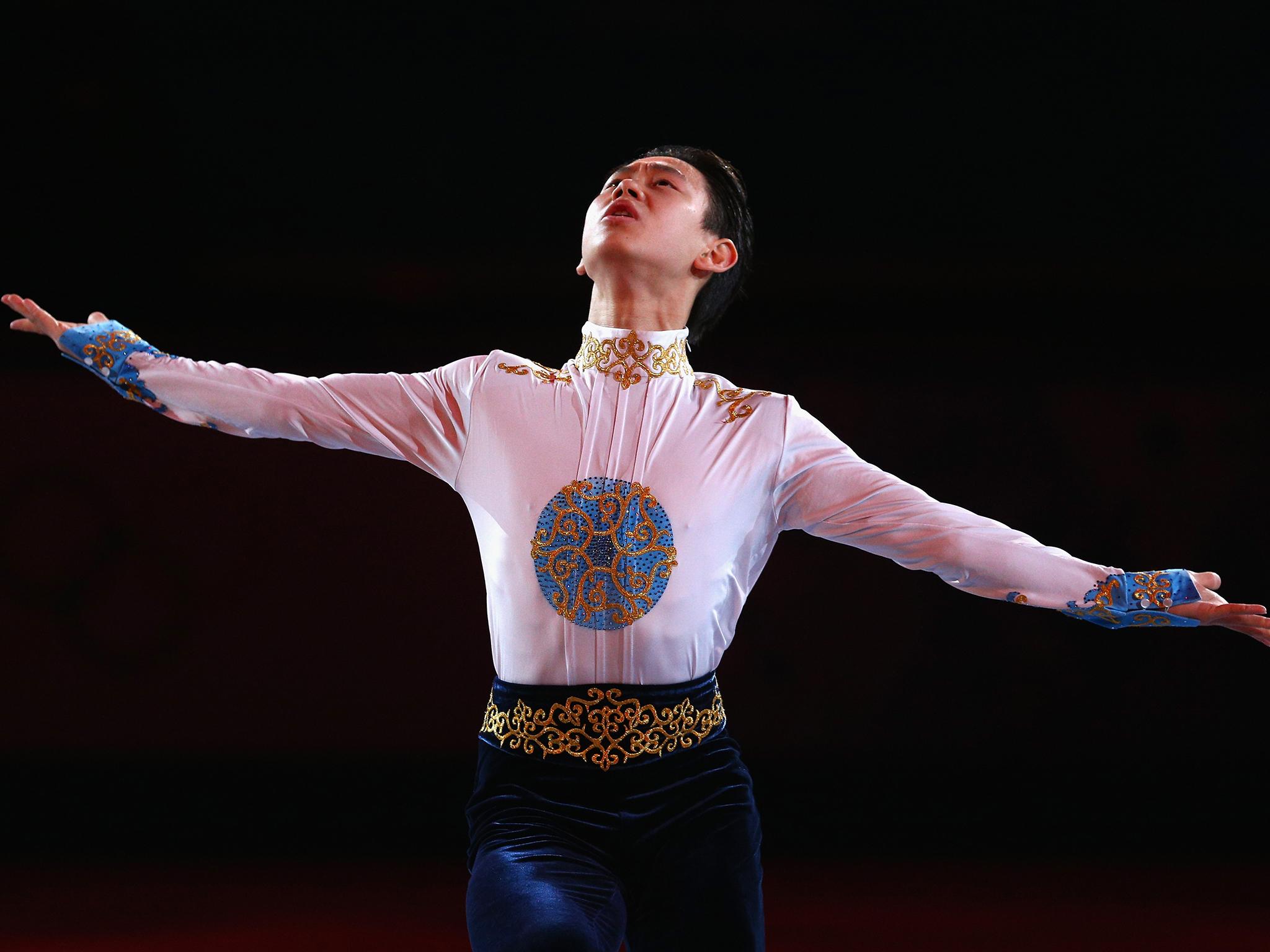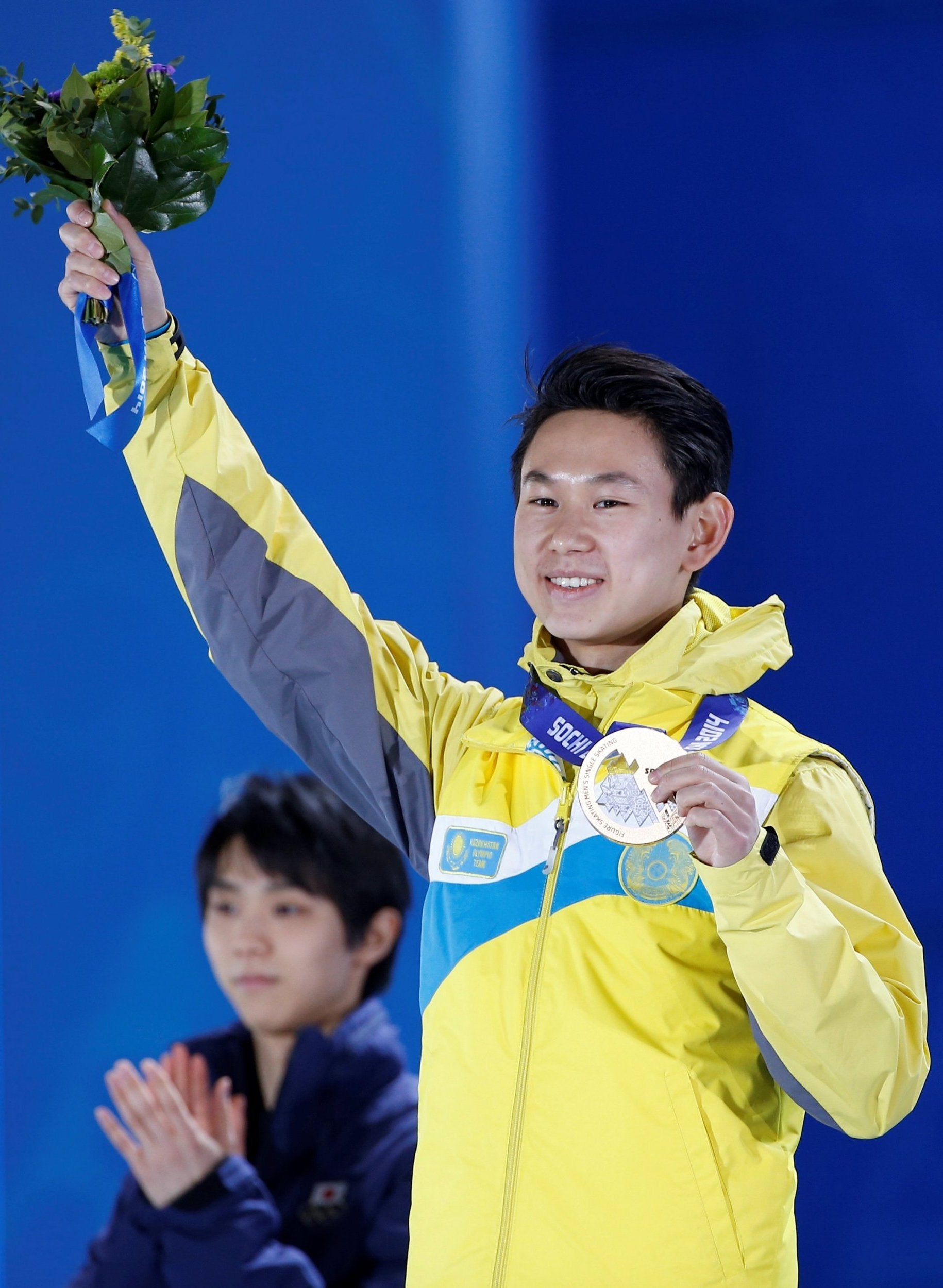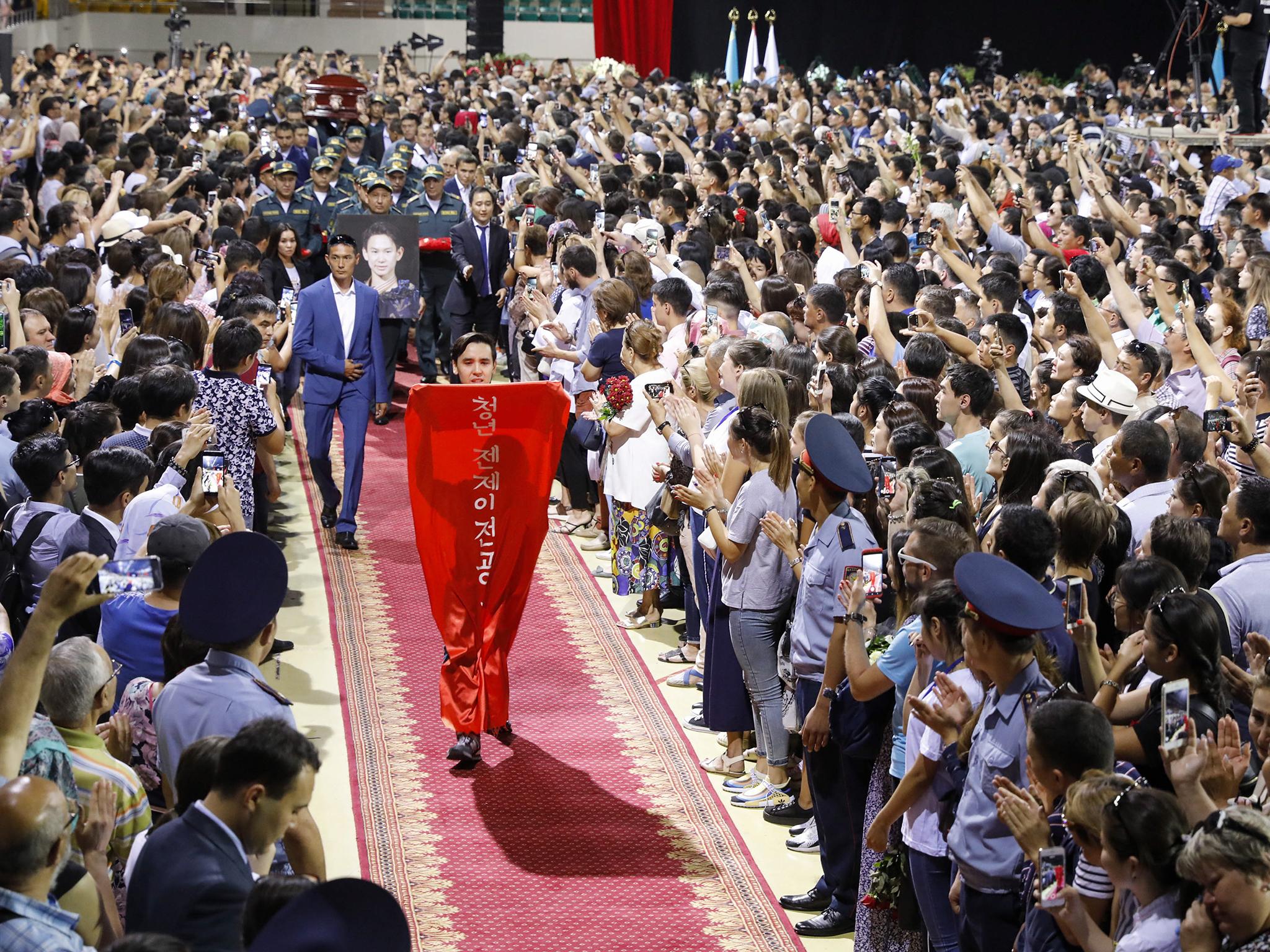Denis Ten: Kazakhstan's first Olympic figure skating medallist
Ten embodied the Olympic dream and inspired a generation of Kazakh athletes to take to the ice

Denis Ten, the Olympic athlete who won Kazakhstan’s first ever figure skating medal at Sochi 2014, once recalled a routine featuring “a person who lost to his enemy, worked hard, overcame himself and in the end won”. That was a love story on ice. He was offered no such opportunity in real life last week.
Ten was found in the street following an altercation that occurred when two thieves, intent on stealing his car mirrors, apparently, stabbed him, leaving him with a thigh injury. He died, aged 25, in hospital in his native Kazakhstan. (Two male suspects have since reportedly confessed to his killing.)
In 2011, Ten described the storytelling that informed the track accompanying one of his routines – he often stayed up into the early hours to cut these himself.
The protagonist he represents on the ice fights for the love of his life who is taken away. But he falls victim to dark forces. Then “the black and white parts of his soul merge”.
“I do a triple loop and then a triple Lutz,” he says. “The last step sequence is the last fight, which our hero wins.”
This attention to story was inspired by his friend and mentor, Swiss figure skater Stephane Lambiel. He had hoped to train with him that year but was refused a Swiss visa. Lambiel visited him in Kazakhstan.
Growing up there, Ten initially showed talent as a musician. His mother, Oksana, a violinist, thought he would follow in her footsteps. Ten spent five years at music school in Almaty, Kazakhstan’s biggest city.
Softly spoken and modest – a persona that contrasted with the intention and thrust with which he launched himself into jumps – Ten embodied the Olympic dream for a generation of Kazakh athletes. His soaring success in the rink inspired a whole nation to take to the ice.

At the Winter Games in Sochi in 2014 he achieved bronze – he could have retired and given his ankle injuries a rest, and probably should have but he was hell-bent on reaching the Pyeongchang Games in Korea.
Ten was born in Kazakhstan to an ethnic Korean family – many Koreans were forced there from Russia’s far east in 1937 by Stalin. His great-great-grandfather was Korean independence fighter General Min Keung. As a young musician, Ten visited South Korea for the first time as part of the choir that won the World Choir Games in Busan in 2002.
Last summer he sustained an injury that severely diminished his performance there. He did not qualify for the Olympic free skate having finished 27th with his short skate routine.
Ten had endured months of recovery and only managed two weeks of intense training. He didn’t want to let his fans down.
“I know a large number of people who have followed my success over a long period are on my side here, not only because I’m a figure skater but because, first of all, I’m a Korean,” he said.

But visits to an outdoor rink showed him that skating was his true passion. At first he was able only to skate in winter but then an indoor rink was built at a local shopping centre. At that point Ten quickly developed his talent, taking part in a competition in Omsk, Siberia, in 2003. Just nine years old at the time, Ten wowed the crowd and the judge, who subsequently introduced him to former Russian figure skater Elena Vodorezova. With Vodorezova’s encouragement, Ten moved with his mother to Moscow, where he trained under Tatiana Tarasova. Ten’s father and older brother, Alexei, stayed in Kazakhstan.
Two years later, Ten was a flower boy at the 2005 Moscow World Championships. At the start of the competition, he ran up to his hero, Evan Lysacek and asked for his autograph. In 2009 Ten and Lysacek met again. This time both were competing at the Four Continents in Vancouver. In the World Championships at the Staples Centre in Los Angeles a few months later, Ten came fourth. Lysascek was the overall winner but Ten’s stunning performance won him a standing ovation from the 10,000-strong crowd and marked him out as the one to watch.
In Los Angeles, Ten trained with American coach Frank Carroll. Returning to Asia in 2011, he won gold at the Asian Winter Games. He was Kazakhstan’s first figure skater at the games and his success prompted the Kazakh government to build more ice rinks. Ten went on to represent his country again at the Sochi Winter Games in 2014, bringing home Kazakhstan’s first Olympic medal – despite having to skate in unmatched boots. Meanwhile, in Kazakhstan and abroad, Ten’s growing fan base was delighted by his television series, Denis Ten and Friends.
Off the ice, Ten was softly spoken. Vodorezova said of her former student, that he was “very quiet, very shy, but he transforms on the ice and seems so emotional”.
The emotional power of Ten’s skating moved his audience and colleagues to tears, as he made his own unique interpretations of music as diverse as Puccini’s Tosca and Eminem’s Lose Yourself.
His longtime collaborator, the Canadian choreographer Lori Nichol has said: “I was so looking forward to Denis’s genius on the ice and his infectious laughter, and our deep conversations.”
Looking back at his life, last year, Ten said: “I had a great career, where everything happened – highs and lows, medals and disappointments, nice memories and not so nice ones, unique events, meetings and many magical things. And the career was not built on one single achievement or a certain medal, but on a chronology of all events as a whole.”
Denis Yuryevich Ten, figure skater, born 13 June 1993, died 19 July 2018
Join our commenting forum
Join thought-provoking conversations, follow other Independent readers and see their replies
Comments
Bookmark popover
Removed from bookmarks